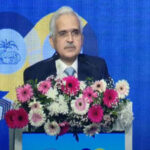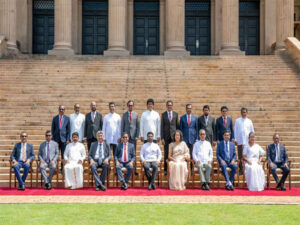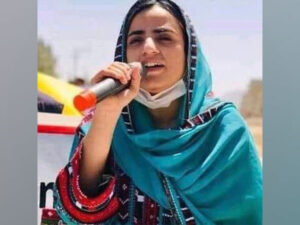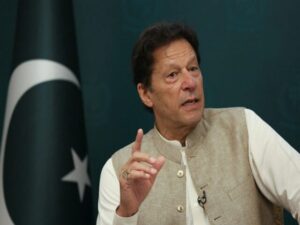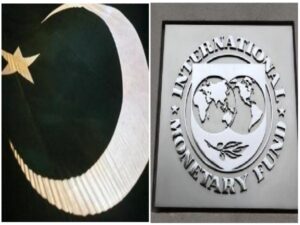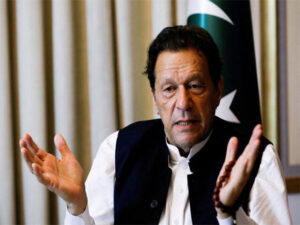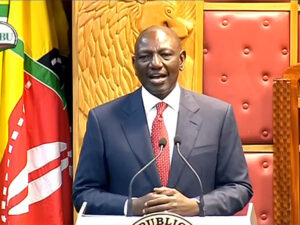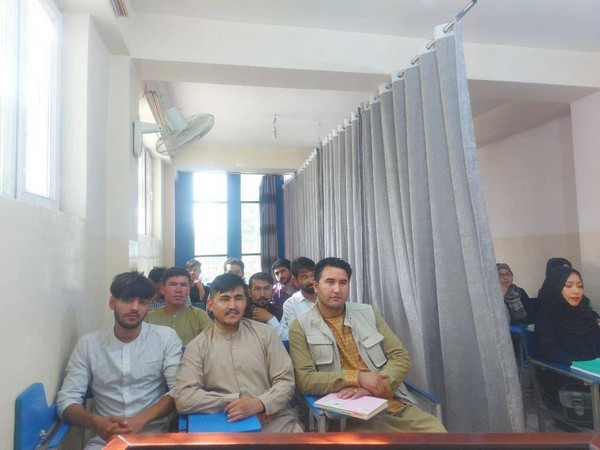
Kabul [Afghanistan], September 13 (ANI): Taliban issued new rules for Afghan women attending universities on Sunday under which they will be required to wear head coverings and the classrooms will be gender-segregated.
Kathy Gannon, writing in The Christian Science Monitor said that Taliban officials said that women in Afghanistan can continue to study in universities, including at post-graduate levels, but classrooms will be gender-segregated and Islamic dress is compulsory.
Taliban government’s new Higher Education Minister, Abdul Baqi Haqqani said that women cannot play sports, but can continue to study in Afghan universities. Co-ed classes are forbidden and women must adhere to an Islamic dress code.
Haqqani, laid out the new policies at a news conference, several days after Afghanistan’s new rulers formed an all-male government.
Haqqani said hijabs will be mandatory but did not specify if this meant compulsory headscarves or also compulsory face coverings.
Gender segregation will also be enforced, he said. “We will not allow boys and girls to study together,” he said. “We will not allow co-education.”
The world has been watching closely to see to what extent the Taliban might act differently from their first time in power, in the late 1990s. During that era, girls and women were denied an education and were excluded from public life, said Gannon.
The Taliban have suggested they have changed, including in their attitudes toward women. However, women have been banned from sports and the Taliban have used violence in recent days against women protesters demanding equal rights, reported US-based agency The Christian Science Monitor.
Haqqani said the subjects being taught would also be reviewed. While he did not elaborate, he said he wanted graduates of Afghanistan’s universities to be competitive with university graduates in the region and the rest of the world, reported The Christian Science Monitor.
The Taliban, who subscribe to a strict interpretation of Islam, banned music and art during their previous time in power. This time around television has remained and news channels still show women presenters, but the Taliban messaging has been erratic, said Gannon.
In an interview on Afghanistan’s popular TOLO News, Taliban spokesman Syed Zekrullah Hashmi said last week that women should give birth and raise children. While the Taliban have not ruled out the eventual participation of women in government, the spokesman said “it’s not necessary that women be in the Cabinet.”
The Taliban seized power on August 15. They initially promised inclusiveness and a general amnesty for their former opponents, but many Afghans remain deeply fearful of the new rulers.
Taliban police officials have beaten Afghan journalists, violently dispersed women’s protests and formed an all-male government despite saying initially they would invite broader representation.
The new higher education policy signals a change from the accepted practice before the Taliban takeover. Universities were co-ed, with men and women studying side by side, and female students did not have to abide by a dress code. However, the vast majority of female university students opted to wear headscarves in line with tradition.
In elementary and high schools, boys and girls were taught separately, even before the Taliban came to power. In high schools, girls had to wear tunics reaching to their knees and white headscarves, and jeans, makeup and jewellery were not permitted, reported The Christian Science Monitor.
Afghanistan: Female doctor in Kandahar claims beaten by Taliban
A female doctor in Afghanistan‘s Kandahar province has claimed that her home was stormed by the Taliban and she was beaten along with her family members and a neighbour, local media reported.
Fahima Rahmati, who is also a civil activist, said in a video clip that the Taliban have also taken her mobile phones while their raid on her home on Sunday night (local time), Khaama Press reported.
Rahmati said that she was neither a former government official nor had a weapon in her home but the Taliban wanted to take with themselves her brothers.
Provincial officials in Kandahar province said that they are not aware of the raid and will investigate the case and bring to justice the culprits, Khaama Press reported.
Fahima Rahmati is a local doctor and is running a charity foundation in Kandhar province and helping poor families.
“Two of my brothers are still missing, I hope the Islamic Emirate of Afghanistan will hear my voice, my two brothers, my brother-in-law and two brothers-in-law of my sister are still missing, where are they and with whom are they?” Khaama Press quoted Rahmati as saying.
Meanwhile, the Taliban last week formed the interim “Islamic Emirate” appointing hardliners in its new government.
The list announced by chief spokesman Zabihullah Mujahid was dominated by members of the group’s old guard, with no women included.
Mullah Mohammad Hasan Akhund, chief of the Taliban‘s powerful decision-making body ‘Rehbari Shura’ will head the new “caretaker” government in the country.
Taliban entered Kabul on August 15 after an aggressive and rapid advance against government forces amid the withdrawal of US and NATO troops from the country.
Healthcare system in Afghanistan on edge of collapse
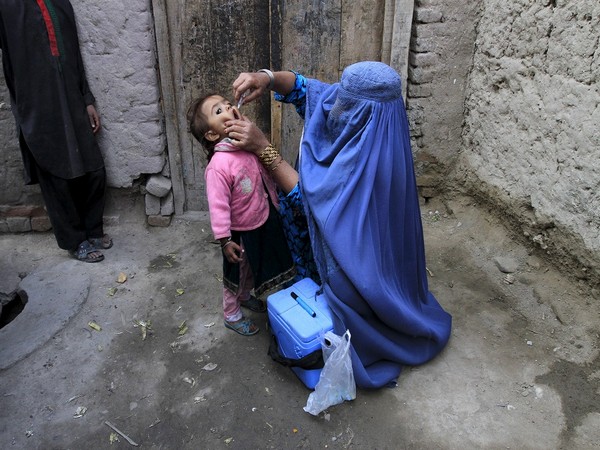
After the Taliban‘s takeover, the health care system in Afghanistan is crumbling as international donors have withdrawn funds.
Apoorva Mandavilli, writing in The New York Times said that post-Taliban‘s takeover, international donors withdrew funds that hospitals and clinics depended on. Now, the fourth wave of COVID looms.
The country’s health care has been propped up by aid from international donors. But after the Taliban seized power, the World Bank and other organizations froze USD 600 million in health care aid, endangering the lives of millions and compounding a deepening humanitarian crisis, public health experts warn.
The Biden administration, too, is struggling with how to dispense donor money to a country now being run by several senior Taliban leaders whom the United States has designated to be terrorists, said Mandavilli.
If World Bank funding is not restored quickly, an exodus of health care workers may result. The cut-off would effectively end health care services in 31 of the nation’s 34 provinces, humanitarian groups said.
Afghanistan is already on the brink of universal poverty, according to a United Nations report, and only its richest citizens will be able to afford health care.
Assuming that health care coverage is cut by half because of the funding loss, deaths among women and children will increase by at least 33 per cent over the next year — nearly 2,000 women and more than 26,000 children per year — according to one analysis, reported The New York Times.
“There have been massive improvements in many metrics of health, like maternal mortality, tuberculosis and malaria,” said Peter Sands, executive director of the Global Fund, an advocacy group that funds campaigns against HIV, malaria and tuberculosis.
Moreover, Afghanistan emerged from a third wave of virus infections just a few weeks ago, but it is already seeing a small uptick in cases, this time of the highly contagious Delta variant. Only 5 per cent of the population have received at least one dose of a COVID-19 vaccine, said Mandavilli.
“It’s terrible timing that this would happen when right now we’re faced with a situation where humanitarian needs are escalating,” said Dr Richard Brennan, the regional emergency director for the World Health Organization’s Eastern Mediterranean region.
Further, roughly two-thirds of the country’s health facilities are part of Sehatmandi, a three-year, USD 600 million project administered by the World Bank and funded by the US Agency for International Development, the European Union, the World Bank and others, reported The New York Times.
Because funds were put in effect through the Afghanistan Ministry of Public Health, the donors withdrew their support after the Taliban‘s ouster of the previous administration, said Mandavilli.
The shuttering of Sehatmandi clinics in Afghanistan is likely to overwhelm those funded by other means, aid workers said.
When no commercial flights were allowed into the country, medical supplies at many hospitals dwindled. Insurance costs for flights have skyrocketed, and funds don’t go as far. Trauma and emergency health kits, and testing kits for the coronavirus, are in particularly short supply.
The Sehatmandi program contracts out the delivery of health services to more than 30 nongovernmental organizations. On August 31, a week after the funding pause, an alliance of some of the NGOs warned that absent of immediate solutions, the organizations could not continue their work after September 5, reported The New York Times. (ANI)




